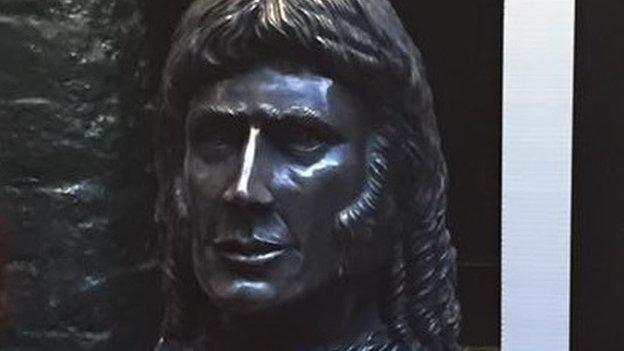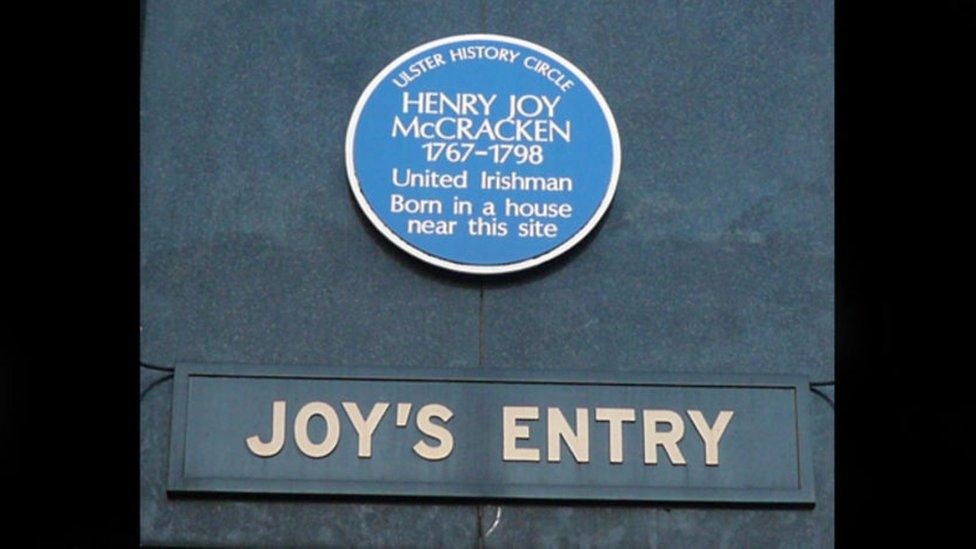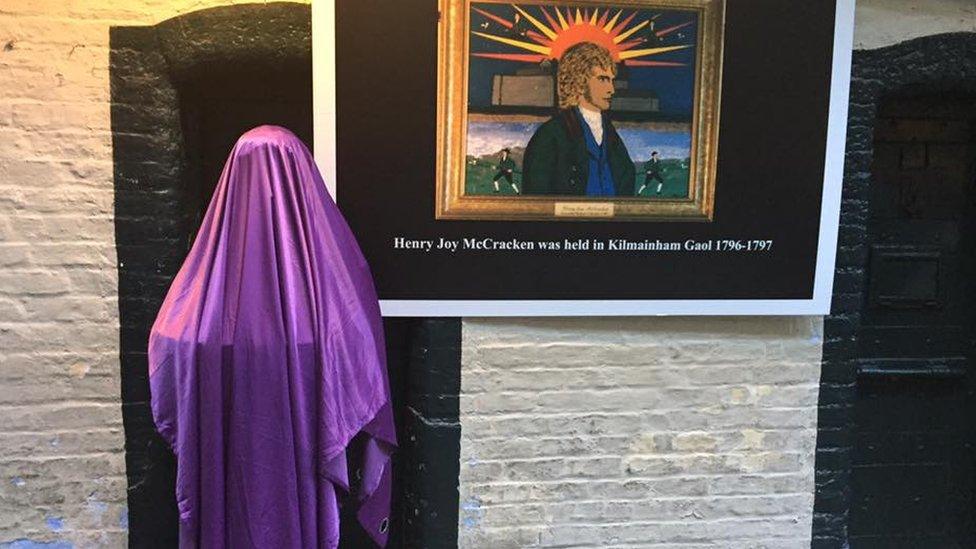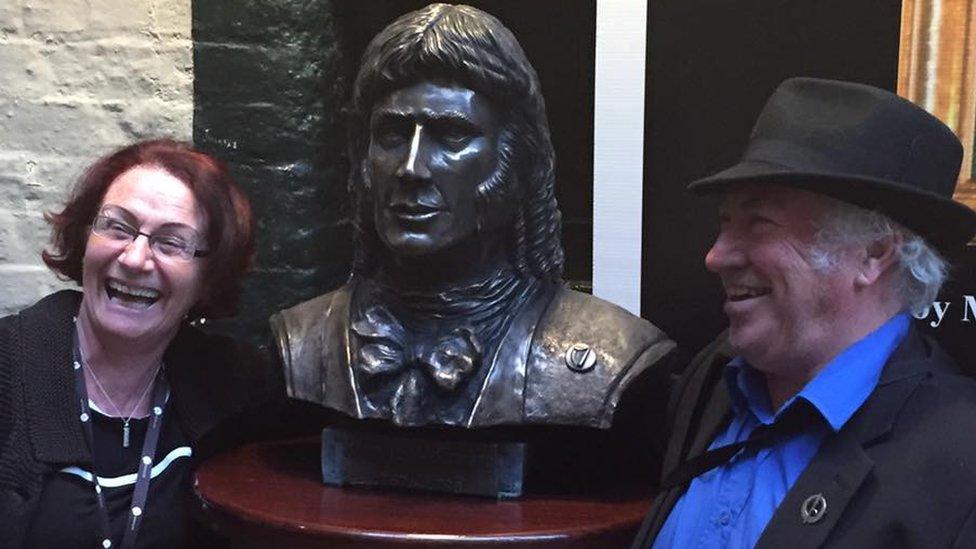Bust of Henry Joy McCracken unveiled in Dublin
- Published

The bust, made by sculptor Yoram Drori, was unveiled on Thursday
A bust of a Belfast-born united Irishman has been unveiled in Kilmainham Jail in Dublin.
The sculpture was revealed to mark the 250th anniversary of the birth of Henry Joy McCracken on Thursday.
The Belfast Presbyterian cotton manufacturer was a leading member of the Society of United Irishmen, established in Belfast in October 1791.
He became, in death, the symbol of the 1798 Rebellion in Ulster.

Henry Joy McCracken's name is on a blue plaque at the arched entrance to Joy's Entry, in Belfast
Born to ship-owner and sail-maker Captain John McCracken and Ann Joy, a member of a leading Huguenot family, he was part of one of the most respected Presbyterian families in Belfast.
His mother's grandfather had founded Ireland's oldest newspaper, the Belfast Newsletter in 1737 and her brother was the Henry Joy who built the Poor House in 1774.
Inspired by the French Revolution, and with great admiration for the new democracy of the United States, the United Irishmen were led by Theobald Wolfe Tone, Thomas Russell, Henry Joy McCracken and William Drennan.
They came together to secure a reform of the Irish parliament; and they sought to achieve this goal by uniting Protestant, Catholic and Dissenter in Ireland into a single movement.
In October 1796 he was arrested by the authorities and imprisoned in Kilmainham Jail along with his brother, William, and his minister, the Reverend Sinclair Kelburne.
He was released in early-1798, after becoming ill.

Before Thursday evening's unveiling in Kilmainham Gaol in Dublin
He was arrested again after he led a band of rebels in the battle of Antrim and was hunted down after the rebels were defeated.
An offer was made to spare his life if he named his co-conspirators but he declined and sealed his fate.
He was tried for treason on 17 July 1798 and hanged in Cornmarket in Belfast on the same day, on the ground given to the town by McCracken's great great grandfather.
Artist, painter and designer Robert Ballagh unveiled the bust, by Israeli sculptor Yoram Drori.

Carmel McCartney from Dublin City Council and Michael O'Flanagan, secretary of The Kilmainham and Inchicore Heritage Group
It was commissioned by Michael O'Flanagan, Secretary of the Kilmainham Heritage Group who told the BBC he was "delighted" with how the commission had turned out.
"It's a splendid reproduction of Henry Joy McCracken, especially considering that the sculptor only had a side view of him to work with," he said.
Mr O'Flanagan also commissioned a bust of the Irish poet Frances Ledwidge in August 2016.
It was unveiled by former deputy first minister and former Sinn Féin leader, the late Martin McGuinness in Dublin.
It was one of his last public engagements before his death.